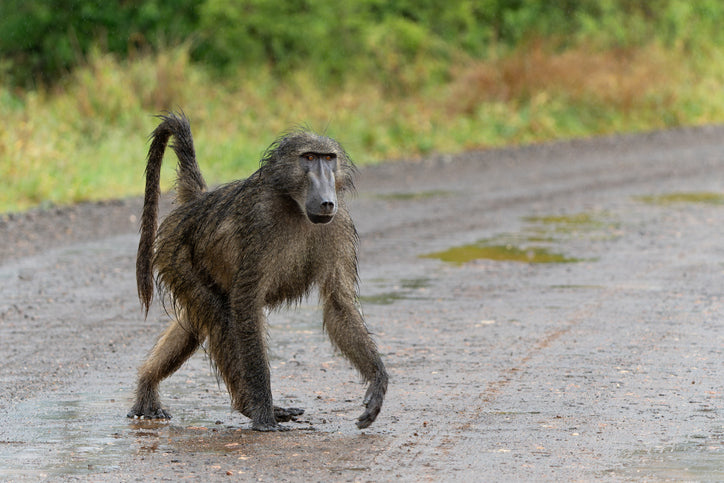
The Baboon
Share
The Playful Baboons of Kruger National Park 🐒
Meet the mischievous baboons of Kruger National Park, where these clever primates entertain and fascinate visitors with their antics. Baboons are highly social creatures, often spotted playing, grooming, or foraging together in large troops.
Social Structures: Baboons live in complex social structures called troops, which can include dozens of individuals. Within these groups, baboons form strong bonds, especially between mothers and their offspring. These relationships are crucial for their survival and play a significant role in their daily interactions. 🐵👪
Adaptability and Diet: Baboons are incredibly adaptable and can be found in a variety of environments within the park. They are omnivorous, eating a varied diet that includes fruits, insects, seeds, and occasionally small mammals or birds. Their ability to find food in diverse conditions makes them key players in the ecosystem. 🌿🐜
Playful Personalities: One of the most endearing traits of baboons is their playful nature. Young baboons often engage in games that help them learn important skills like climbing and social interaction. Observing their playful interactions is a delight for any wildlife enthusiast. 🎉🌳
Conservation Status: While baboons are currently not at risk of extinction, they face threats from habitat encroachment and conflict with humans. Efforts in Kruger Park aim to manage baboon populations humanely and educate visitors on coexisting peacefully with these intelligent animals. 🛡️🤝
Fun Fact for Kids: Did you know that baboons have their own language of sorts? They communicate with a variety of sounds, facial expressions, and body postures to convey different messages to their troop members. 🗣️👀
Engage and Learn: As you colour in the baboons on your Kruger Park roll, think about their playful and social nature. These fascinating animals offer a window into the complex social lives of one of Africa's most iconic primates. 🖍️📖